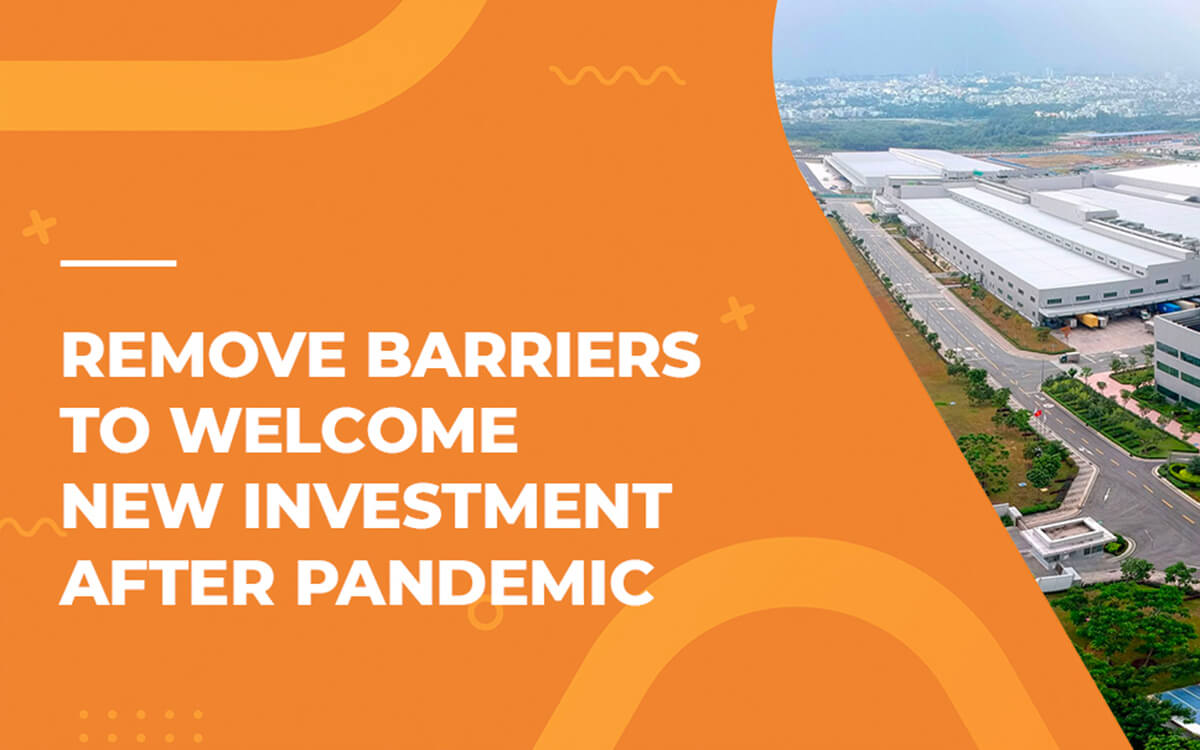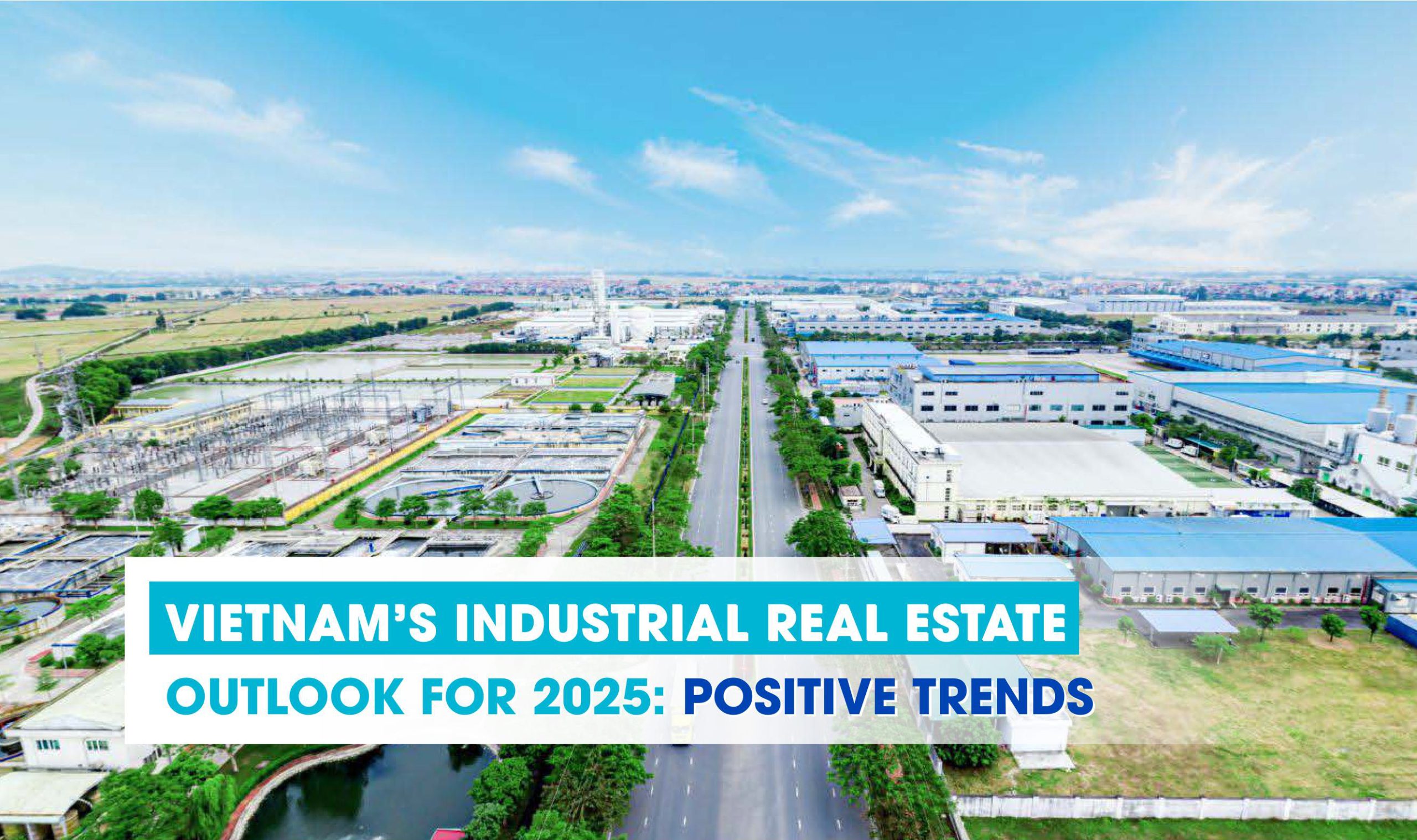The COVID-19 pandemic is opening a new opportunity for attracting foreign direct investment (FDI) and indirect (FII) in Vietnam. To lessen the impacts of the supply chain disruption, avoid overreliance on a particular country, many US, Japanese and South Korean enterprises have planned to move its production from China to other countries, including Vietnam.

According to experts, many multilateral and bilateral free trade agreements and most recently EU – Vietnam Free Trade Agreement (EVFTA) and EU – Vietnam Investment Protection Agreement (EVIPA) are opening up great opportunities in both exports and investment attraction.
SSI Securities Joint Stock Company’s analysis indicates that, in the first 4 months of 2020, FDI inflows into industrial parks in Vietnam showed positive signs with the total newly and additionally registered capital of US $9,8 billion, up 32% over the same period. Thankfully, major enterprises like Pegatron (Taiwan), Amazon (USA) and Home Depot (USA) have started recruiting and searching for supply chain.

SSI experts assessed that, compared to Indonesia, which directly competes with Vietnam in attracting FDI, it is clear that we have competitive edge, as follows:
- On the border with China, the transportation distance is more favorable.
- Vietnam’s policies are very supportive to businesses, with many incentives for large-scaled FDI projects (preferential rules vary from case to case).
- Vietnam participates in many FTAs that Indonesia does not.
- From macroeconomics perspective, the VND has recently been very stable compared to the wild fluctuations of the Indonesian currency.
However, in order to attract this FDI inflow effectively, Mr. Phan Huu Thang, Former Director of Foreign Investment Agency, Ministry of Planning and Investment said that Vietnam needs to take a lot of actions:
- Change and adjust the investment structure, legal system and policies in accordance with the guidance of selectively attracting foreign investment.
- It is necessary to outline specific plans, from guidelines to reality, to implement comprehensive mechanisms and policies.

The opportunity is not only for Vietnam, but also for India, Indonesia… Other countries have priority and clear goals whereas Vietnam is still following a multi-pronged strategy, which explains why Vietnam miss many opportunities.

Ms. Pham Chi Lan frankly pointed out that Vietnam missed the opportunity due in part to chanting slogans without assessing strength and studying. Therefore, the policy should not put a lid on businesses but must remove barriers to give them the opportunity to develop.

Along with attracting FDI, Vietnam also has the opportunity to attract FII through trading stocks, bonds or investing in private companies and venture capital funds. In this regard, Mr. Andy Ho, Chief Investment Officer of VinaCapital, said: “Global central banks will soon issue new sources of fund with a total value of up to US $6,000 billion, the majority of which is going into the capital market with view to supporting the global economy post pandemic. Only a part of these can help Vietnam economy to recover and develop more sustainably in the future.

Mr. Andy analyzed that foreign investors may pay more attention to Vietnam market as our country brings them greater profit than investment in their country. Specifically, in their country, bonds are traded at negative interest rates, term deposit rates are also below zero and dividend payout rate is only 1 – 2%. Meanwhile, in Vietnam, investors can enjoy dividends at 3 – 4%, bond interest rates at 3 – 4% and term deposits at 6 – 7%.

In response to this question, VinaCapital’s research team pointed out that what foreign investors are interested in Vietnam’s capital market are:
- To see more growth opportunities: Investors want to see larger listed companies and the acceleration of the equitization process of state-owned enterprises. They also want to have the opportunity to invest in corporate bonds. They want a diversified portfolio of listed stocks of telecommunications electricity, fertilizer and even healthcare sector, instead of real estate and bank sectors only.
- To trade stocks of enterprises that no longer have room for foreign investors (FOL): Currently, there are 30 listed companies on the market that are trading at foreign ownership limit (FOL). Therefore, new foreign investors will have to buy back shares from existing foreign investors at prices higher than market prices. This will lower the transaction price by 10 – 15% compared to the purchase price when matching orders are needed, which will make it difficult for new investors who want to buy back shares

Particularly for corporate bonds, in order to be accepted for listing, we need a rating process. Today, given many rating agencies such as Moody’s, S&P, Fitch, Vietnam should ask them to assess corporate bond ratings. Then the guarantee process for listing will create liquidity for corporate bonds that become more attractive.
Mr. Hong Sun – Vice Chairman of Korea Chamber of Business in Vietnam (Korcham): Post pandemic, not only Korean investors but also many other foreign investors will come to invest in Vietnam. To seize opportunities, Vietnam needs to take stronger measures of synchronous measures and promote the development of supporting industries.
At the recent Prime Minister’s Meeting with Enterprises, the Vietnam’s Association of Foreign Invested Enterprises (VAFIE) has submitted a proposal of four key points for Vietnam to welcome the shift of FDI inflows. Specifically, economic zones and industrial parks must prepare land, infrastructure, information on land rent, water and electricity supply, human resources to facilitate investors to move factories to Vietnam. In addition, Vietnam must keep licensing procedures open, transparent and simple to shorten time for evaluation and issuance of investment certificates.










Comment